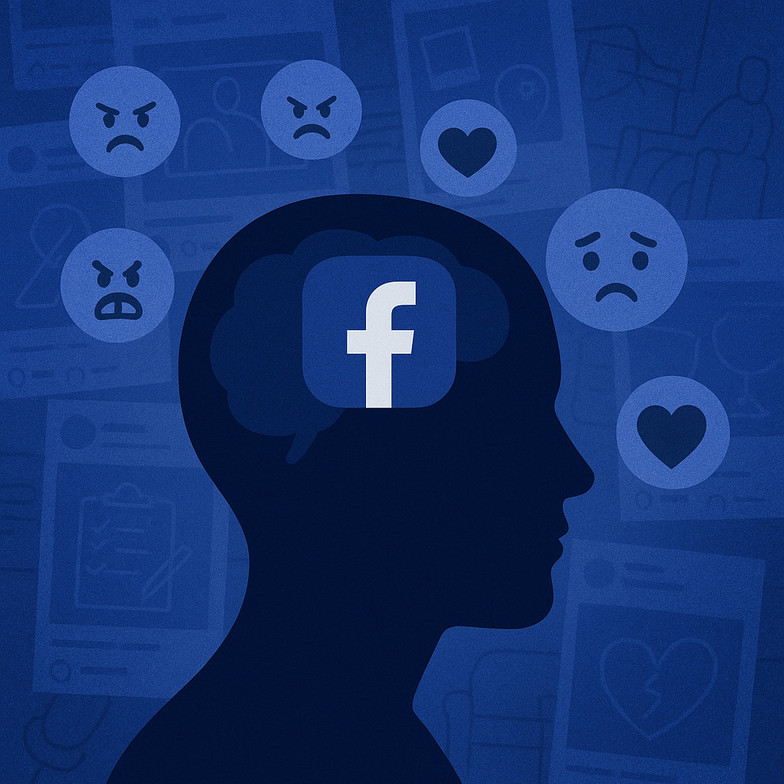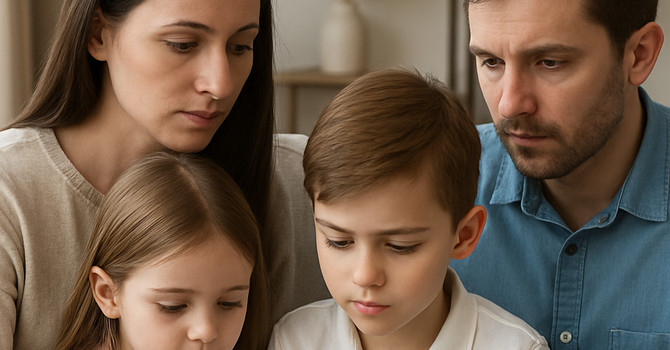
Facebook began as a tool to stay connected, but today it shapes political opinion, spreads emotion, and even impacts public health behaviours. For better or worse, it has become a psychological environment as much as a social one. This blog delves into the psychological consequences of using Facebook, focusing on echo chambers, emotional contagion, and the effect of misinformation on mental well-being.
The Rise of the Digital Echo Chamber
One of the most pressing psychological issues associated with Facebook is the formation of "echo chambers"—digital spaces where users are primarily exposed to information that aligns with their existing beliefs. This happens through algorithmic filtering, which shows users more of what they already engage with, reinforcing their views and reducing exposure to differing opinions.
Echo chambers have profound effects on cognitive rigidity and emotional reactivity. They limit empathy, increase polarization, and create environments where misinformation thrives. The result? A growing sense of us vs. them "can increase stress and anxiety, especially around elections or major social events.
Emotional Contagion: Feelings Are Viral
In 2014, Facebook conducted a controversial study demonstrating that emotional states can be transferred through social media, without direct interaction. Dubbed "emotional contagion," this phenomenon describes how seeing negative or positive posts in your feed can influence your mood, even hours after logging off.
This is especially troubling during global crises or political unrest. Users may find themselves feeling overwhelmed, sad, or angry without a clear understanding of why. The scroll becomes a subtle drip of anxiety-inducing content, and the emotional residue lingers.
Misinformation and Mental Overload
Another concern is the rapid spread of misinformation on Facebook, which can distort public understanding of science, medicine, and even local news. During the COVID-19 pandemic, misinformation about vaccines, treatments, and the origins of the virus proliferated, leading to increased public confusion and emotional fatigue.
This constant exposure to conflicting information can lead to what psychologists call "cognitive overload"—the mental exhaustion that results from processing too much unverified content. This, in turn, erodes trust, promotes helplessness, and feeds cycles of anxiety.
The Anxiety of Performing Identity
While often associated with Instagram, identity performance happens on Facebook, too. Users may feel pressure to present a curated version of their lives, particularly during major life events—engagements, weddings, and career milestones. This reinforces the illusion that others are more successful or happier, leading to self-comparison and self-doubt.
Moreover, Facebook memories can serve as emotional triggers. While they can be joyful, they can also bring up grief, loss, or regret, particularly when anniversaries or past relationships are resurfaced without consent.
Strategies to Protect Your Mental Health on Facebook
1. Diversify Your Feed
Follow sources with differing viewpoints, especially those grounded in evidence and integrity. Exposure to nuance builds empathy and reduces black-and-white thinking.
2. Use "Unfollow" and "Snooze" Features
You don’t need to unfriend someone to take a break from their content. Unfollowing or snoozing for 30 days can protect your peace without creating social tension.
3. Be Aware of Emotional Triggers
Before logging in, check in with yourself. Are you prepared to engage with potentially intense content? Practice grounding strategies before and after using the app.
4. Limit Exposure Time
Set app timers or use browser extensions that limit time on Facebook. The less frequently you scroll, the lower your exposure to negative emotional contagion.
5. Fact-Check Before Sharing
Before reposting, use credible fact-checking websites (like Snopes or FactCheck.org). Spreading misinformation—even unintentionally—contributes to a chaotic informational climate.
When Facebook Becomes Too Much
If Facebook use is contributing to sleep disruption, irritability, or chronic anxiety, it may be time to step back. Mental health professionals can help clients explore their digital habits and develop coping strategies that honour both their need for connection and their need for calm.
Final Thoughts
Facebook is a powerful communication tool, but it also functions as an emotional and cognitive arena. By understanding its psychological effects and making conscious choices about how we engage, we can transform Facebook from a source of stress into a platform for awareness, empathy, and authentic connection.
.JPEG)
.JPEG)




